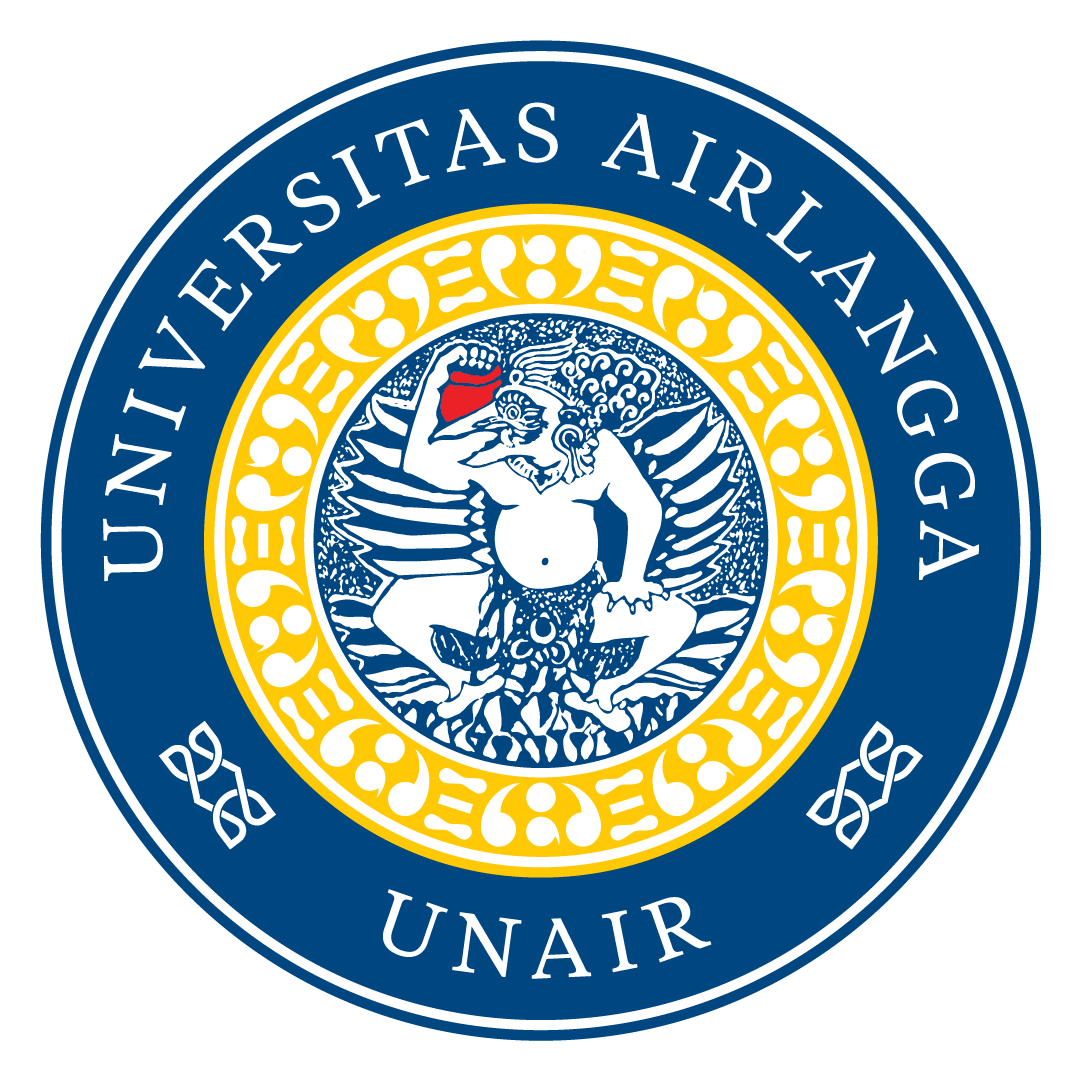Improving Production and Quality of Typical Ngelom Crackers, FST UNAIR Chemistry Department provides Production Tools and Training
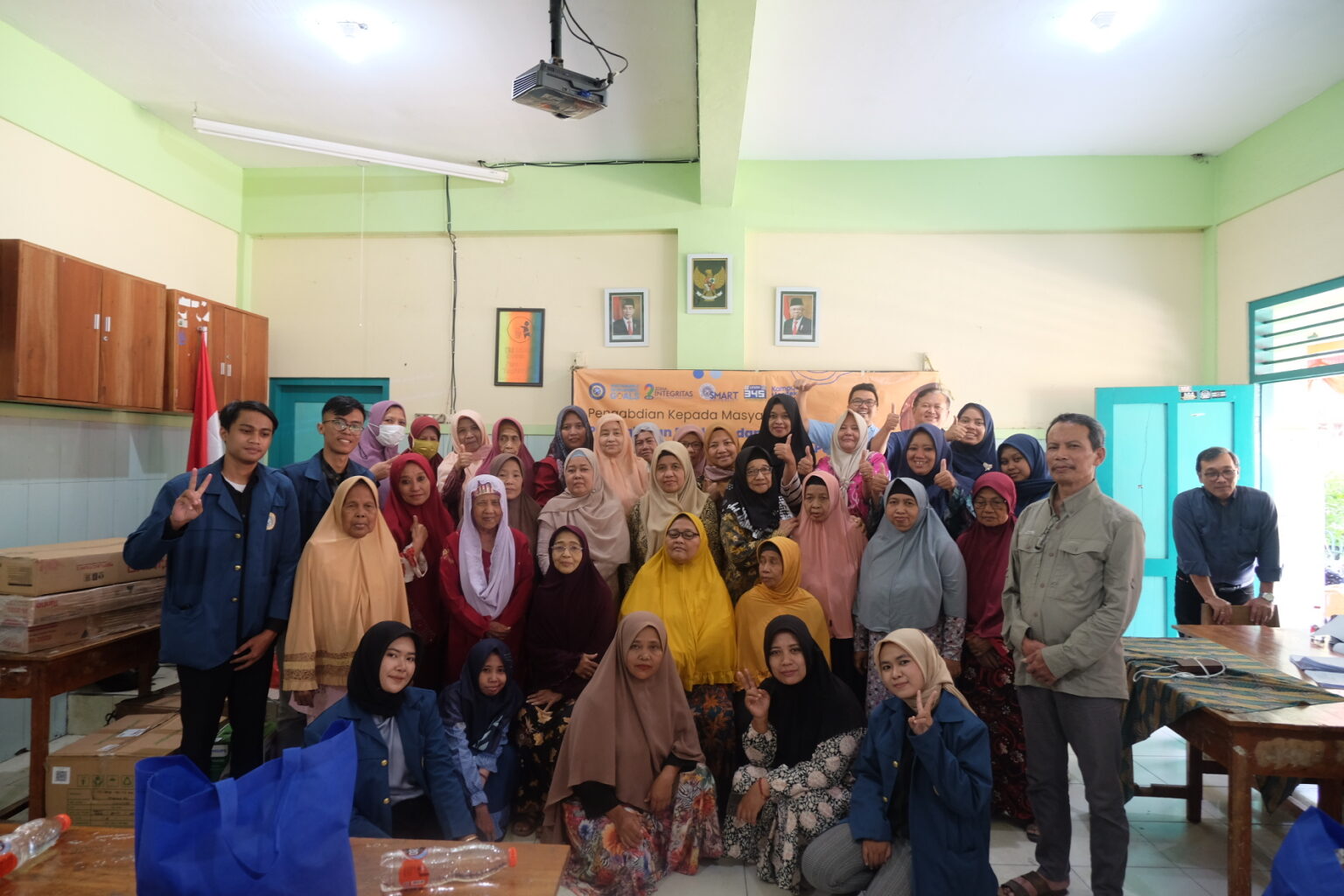
Community service is a form of university concern in improving social welfare by making a positive contribution to the community or society around the campus. Community service carried out by the Department of Chemistry, Faculty of Science and Technology (FST), Universitas Airlangga (UNAIR) in improving the production and quality of cracker products was responded positively by the people of Ngelom Pesantren Village, Taman District, Sidoarjo Regency on Sunday, August 27, 2020. This activity takes place in stages during 2023, starting from the procurement of tools, workshops to periodic assistance.
The head of community service, Qurrota A’yuni, S.Si., M.Si., from KBK Inorganic Chemistry, Department of Chemistry FST UNAIR invited Ngelom Village cracker entrepreneurs to produce more products with better quality. “Ngelom crackers have had a characteristic from decades ago with a hereditary recipe, that is why efforts to preserve Ngelom crackers need to be made,” said Qurrota. “This community service activity will support the achievement of SDG’s Decent Work and Economic Growth through the keyword Small Entrepreneurs and Rural Economy,” she added.
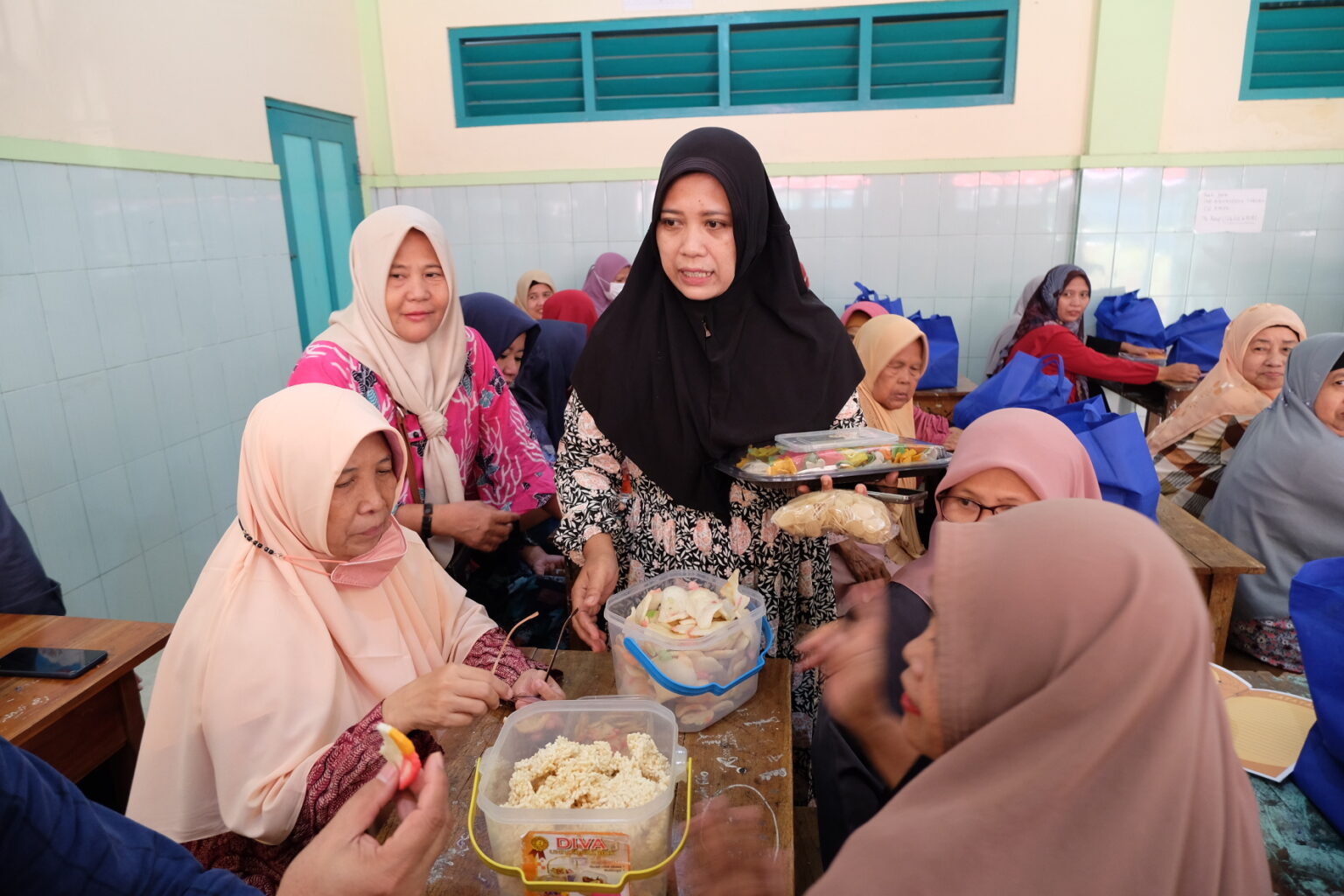
There are various types of crackers from Ngelom Pesantren, including garlic crackers, buron alas crackers, rengginang with various flavors such as shrimp paste, shrimp and fish, and the most typical is payus fish crackers. Ngelom Village’s cracker entrepreneurs consist of two groups: those who produce crackers from raw materials to raw crackers; and those who fry and package them until they are ready for consumption. Both are often partnered according to consumer desires.
In this community service, the Department of Chemistry FST Unair made technological engineering to procure tools that support the production process of crackers, such as level boilers, cracker cutters, oil drainers and plastic sealers. In addition, to be able to preserve the crackers that have been produced for decades, a menu book was compiled which explains the ingredients and procedures for making various types of crackers in Ngelom Pesantren Village, hoping that the recipes will not be lost and can be continued by cracker entrepreneurs and their families.
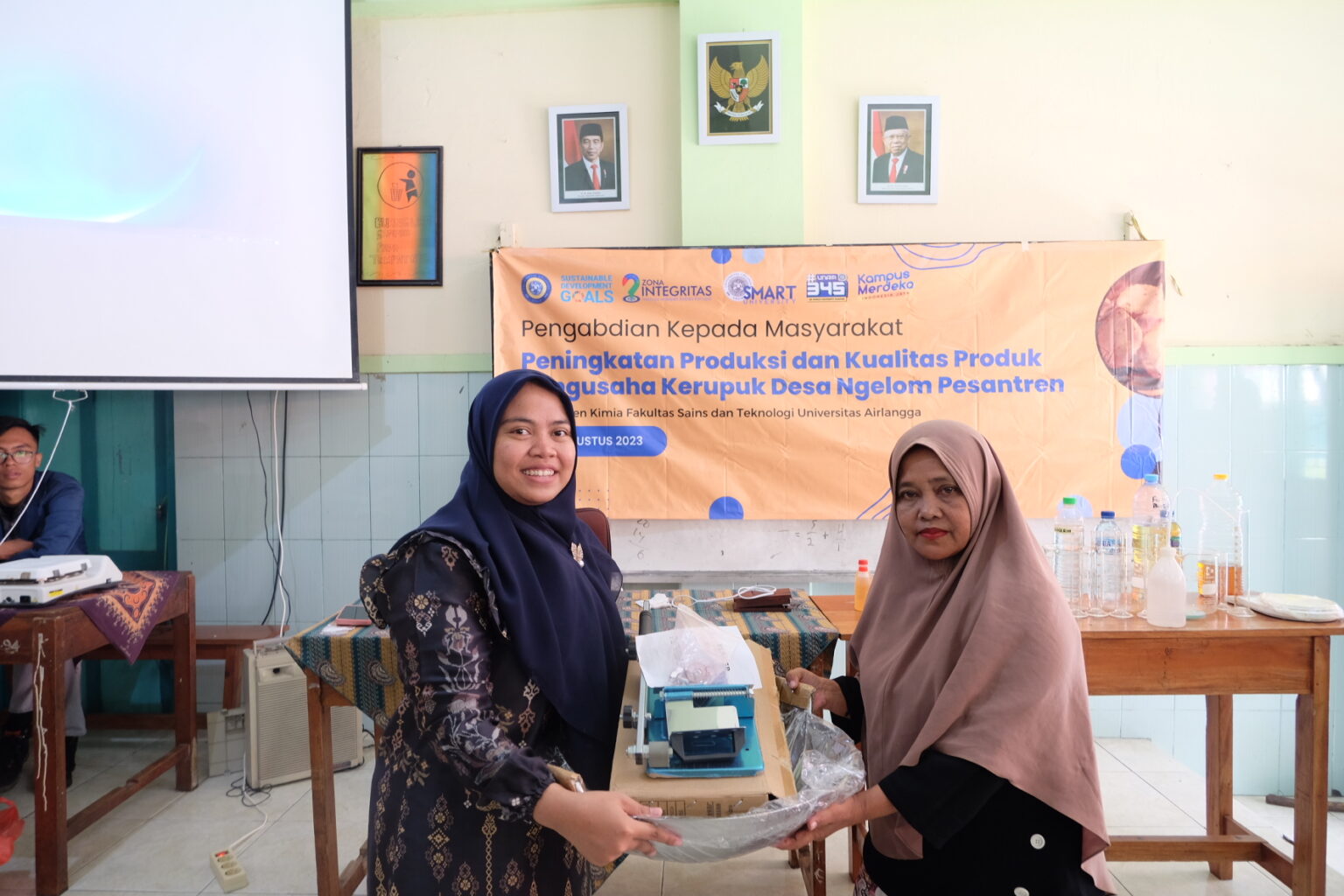
In this community activity, entrepreneurs were also given insights related to halal certification of food products and its procedures. The speaker of this material was Prof. Dr. Pratiwi Pudjiastuti, S.Si., M.Si. who is a lecturer from the Department of Chemistry FST UNAIR. “Starting in 2024, all products must be halal certified, both food and beverages. This can be a concern for business stakeholders to start registering their products for halal certification, where the procedure is actually quite easy, especially for processed crackers made from fish and seafood such as this typical Ngelom cracker,” said Pratiwi.
In this community service, the quality test of used cooking oil from cracker frying was also carried out, testing was carried out to determine the level of free fatty acids, water content, acid number to peroxide number, which then socialized the level of danger of each parameter if it exceeds the quality limit. Furthermore, training was also held on the processing of used cooking oil into liquid soap which was practiced directly in this community service. The resource person for the training was Drs. Tokok Ardiarti, M.Si. who is also a lecturer from the Department of Chemistry FST UNAIR. “Processing used cooking oil into liquid soap can help reduce waste and save natural resources,” said Tokok.
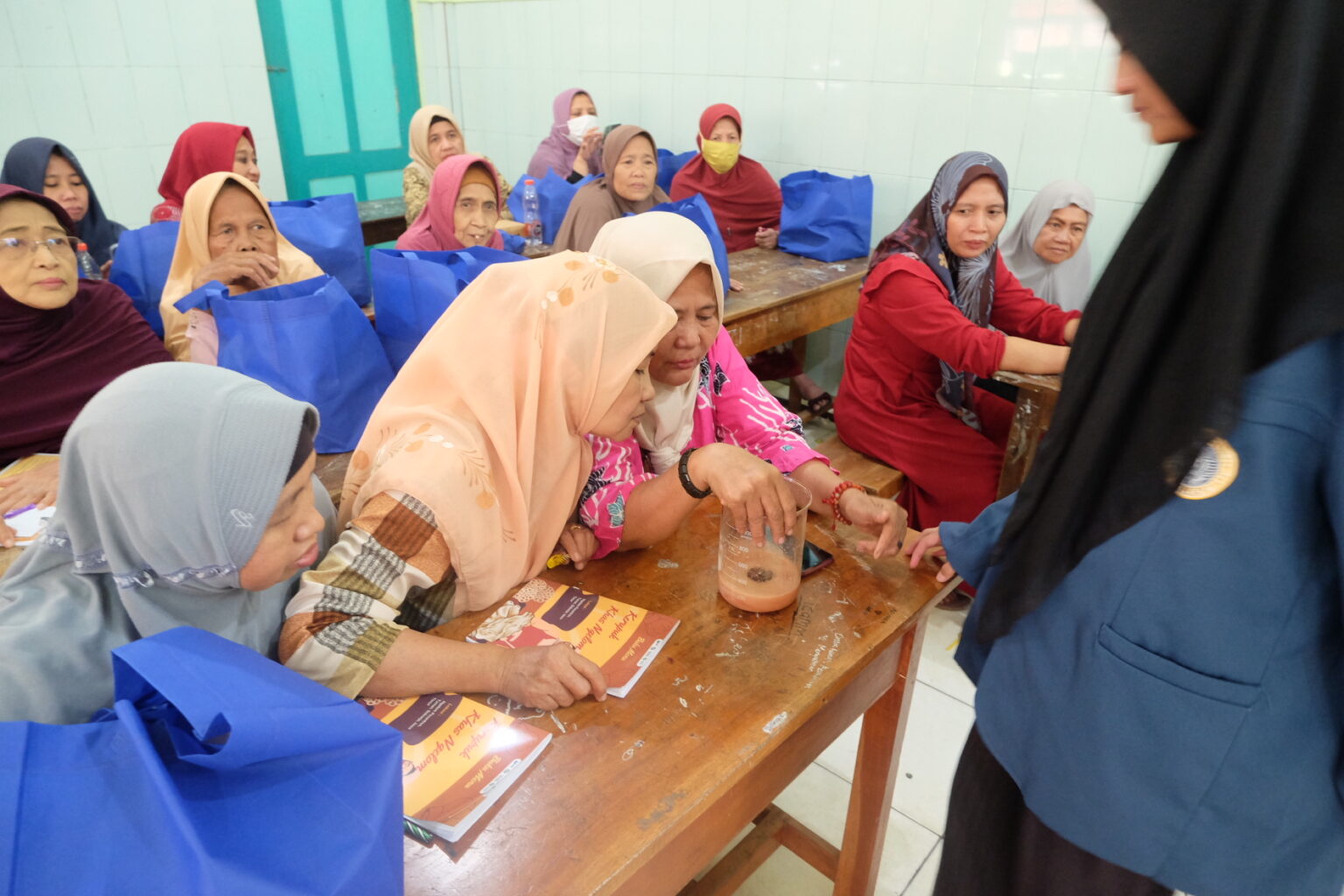
At the end of the session, several representatives of cracker entrepreneurs were given the opportunity to give impressions and messages. They really appreciated the steps and community service activities carried out by the Department of Chemistry FST UNAIR. They hope that with this community service, the people of Ngelom Village can continue to preserve their business and of course increase their enthusiasm to continue developing the production of Ngelom specialty crackers.
Author : Hamzah Hilmy Hermawan
Editor : QRA

